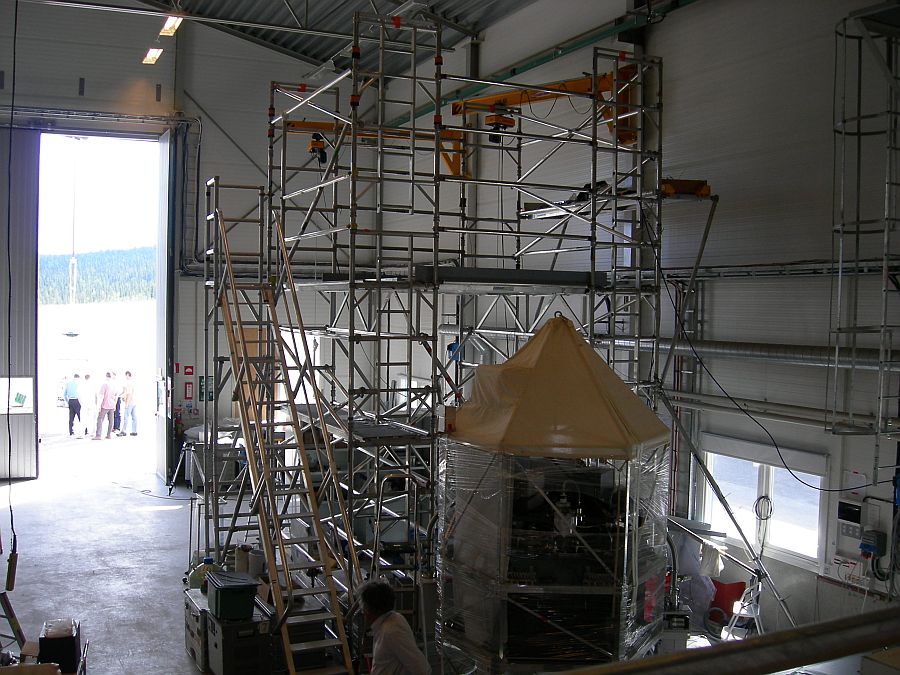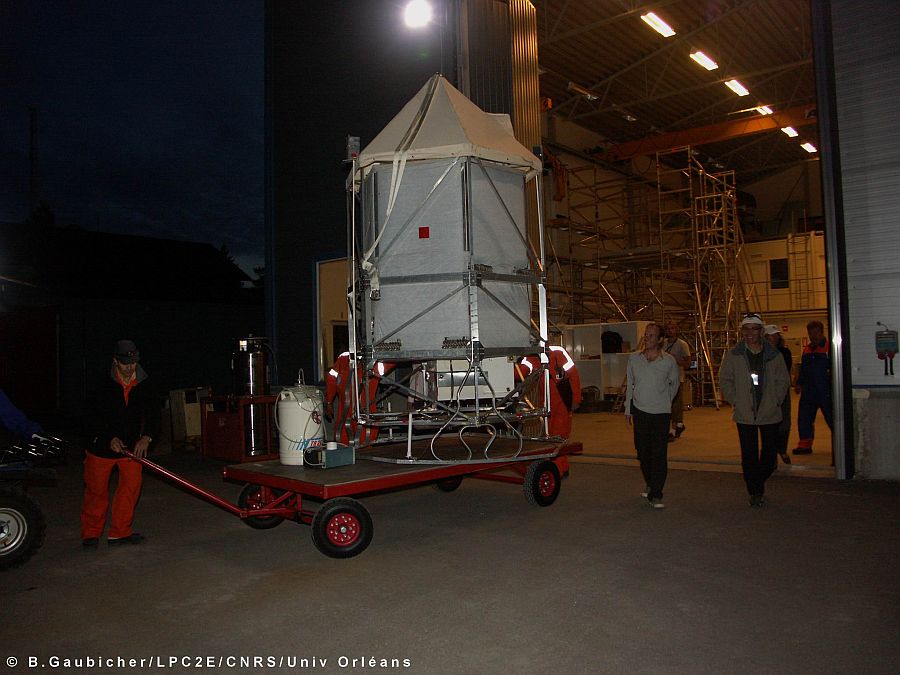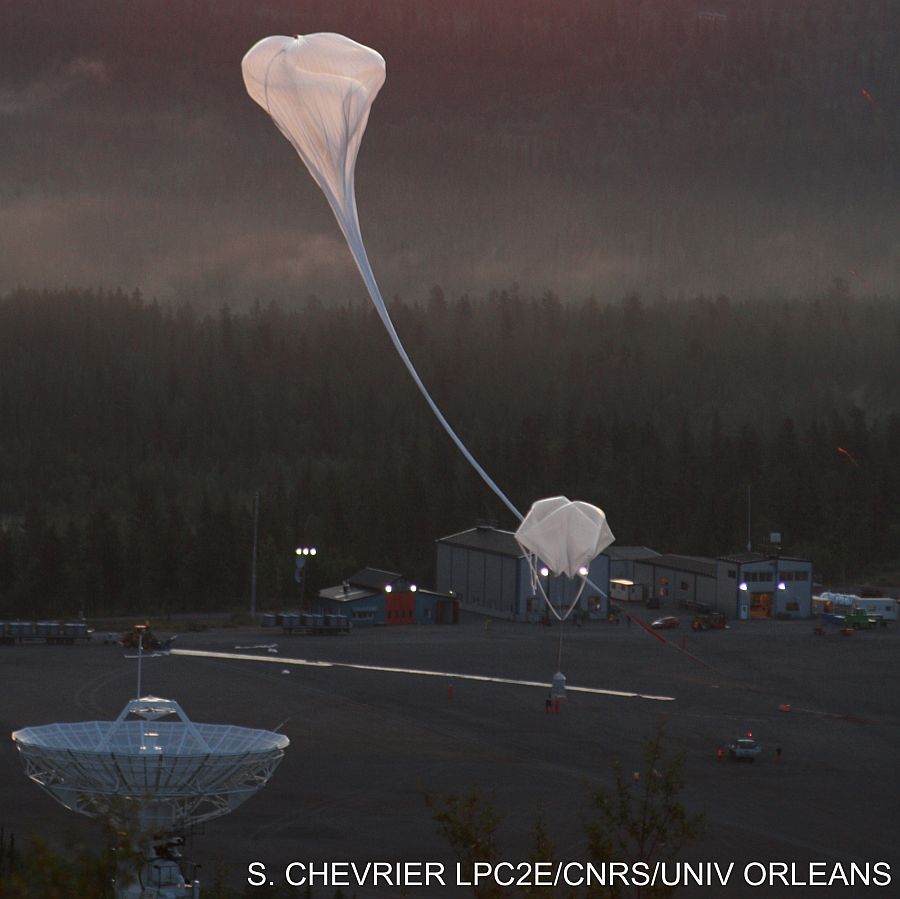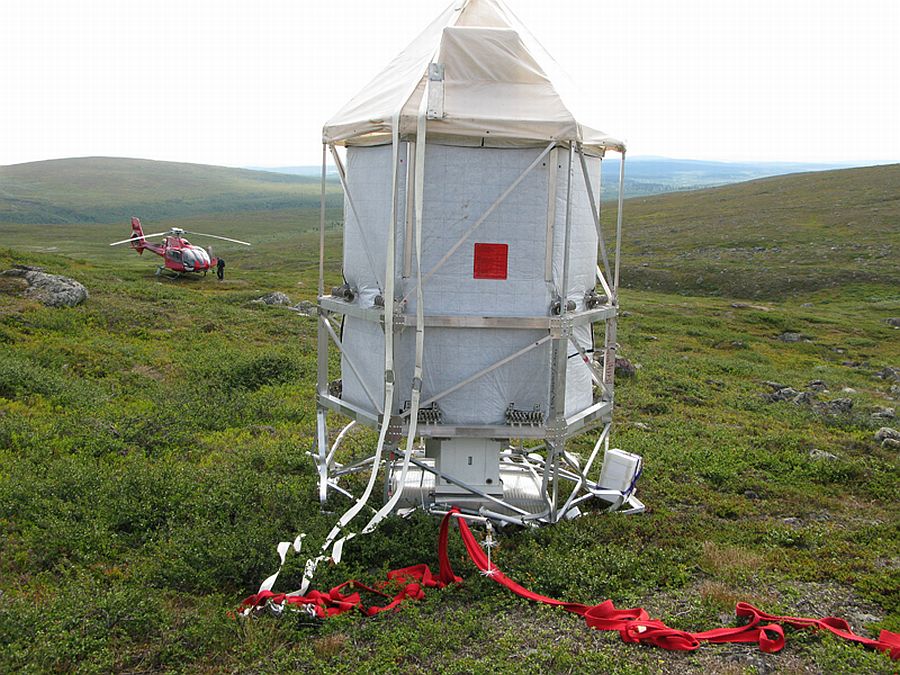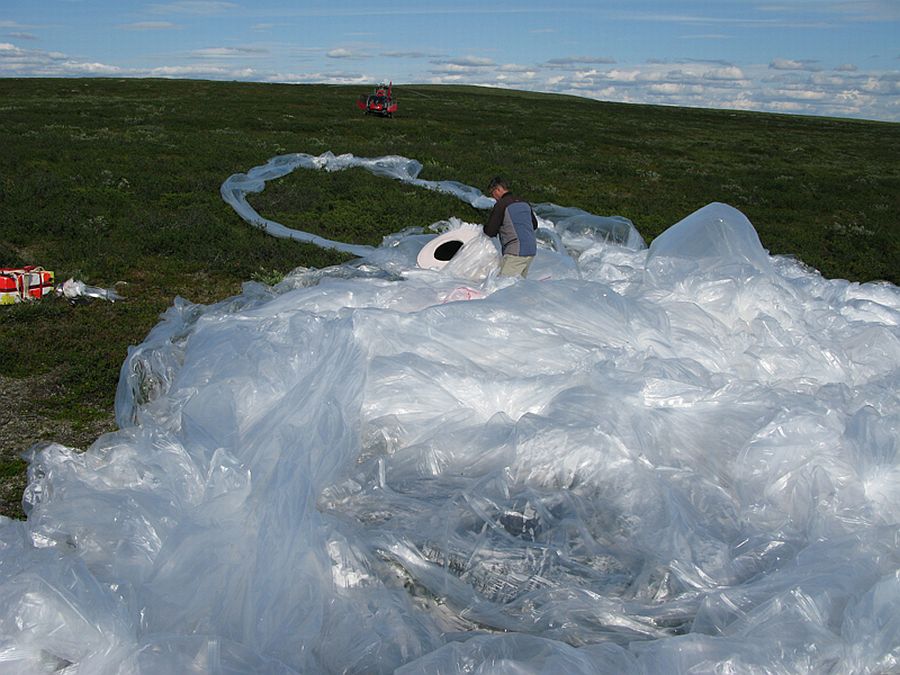Purpose of the flight and payload description
Is a spectrometer with six tunable diode lasers dedicated to in situ measurements of trace compounds in the upper troposphere and the stratosphere up to 35 km altitude.
The 6 laser beams circulate in a multipass HERRIOTT cell located below the gondola. The lower mirror of the two-mirror cell is fixed at the top of a deployable mast. The distance between mirror is about 3.50 m. Given the curvature of the two identical mirrors, two stable optical configuration can be used : first 86 reflections and 300 m optical path, second 156 reflections and 554 m optical path, by moving the lower mirror 5 mm up.
The mast is deployed during the flight to have the first measurements at the tropopause. Around the instrument, a rigid metal frame encompasses it, in order to have a instrument-safe landing.
Inside the instrument, three liquid nitrogen cryostats, hold the six diode lasers and the 12 detectors.
Vertical profiles of concentrations of a great number of species like O3, CH4, CO, CO2, N2O, HNO3, NO2, NO, HCl, HOCl, H2O2, and COF2, are measured with a very high vertical resolution, a high sensitivity and a high precision.
Also was included as piggyback payload an instrument called STAC (Stratospheric and Tropospheric Aerosols Counter) which is a particle counter dedicated to perform in-situ measurements of the aerosol size distributions from the middle troposphere to the middle stratosphere. STAC provides concentration profiles of liquid particles for diameters greater than 0.35 micrometers and of solid particles for diameters greater than 1 micrometer.
Details of the balloon flight
Balloon launched on: 8/7/2009 at 1:26
Launch site: European Space Range, Kiruna, Sweden
Balloon launched by: Centre National d'Etudes Spatiales (CNES)
Balloon manufacturer/size/composition: Zero Pressure Balloon model 150z Zodiac - 150.000 m3
End of flight (L for landing time, W for last contact, otherwise termination time): 8/7/2009 at ~ 6:00
Balloon flight duration (F: time at float only, otherwise total flight time in d:days / h:hours or m:minutes - ): 5 h
Landing site: In the Sjaunja Nature Reserve, 40 km SW of Kiruna, Sweden
Campaign: STRAPOLETE
Payload weight: 511 kgs
The balloon was launched by Auxiliary balloon method on 7 August, 2009 at 1:25 UTC.
After a nominal ascent phase the balloon reached the ceiling of 34 km and then was valved down to start a slow descent until 6:40 utc when was terminated.
The gondola landed with little damage in a hilly zone inside the Sjaunja Nature Reserve at 67.9°N, 21.1°E, SW of Kiruna and was recovered the same day.
During the flight SPIRALE performed in situ measurements of trace gases (O3, CO, CH4, N2O, NO2, HNO3, HCl) from 9 km to 34 km during the ascent, the ceiling and the slow descent of the balloon, while the STAC instrument performed good in situ measurements of aerosols.
External references
- SPIRALE website Laboratoire de Physique et Chimie de l'Environnement - Orleans
- Impact of a moderate volcanic eruption on chemistry in the lower stratosphere: balloon-borne observations and model calculations Atmos. Chem. Phys., 17, 2229-2253, 2017
- List of balloons launched from ESRANGE SSC Space website (via Archive.Org)
- StraPolÉté Project at LPC2E web site
- Stratospheric aerosols from the Sarychev volcano eruption in the 2009 Arctic summer Atmos. Chem. Phys., 13, 6533-6552, 2013
3750If you consider this website interesting or useful, you can help me to keep it up and running with a small donation to cover the operational costs. Just the equivalent of the price of a cup of coffee helps a lot.

